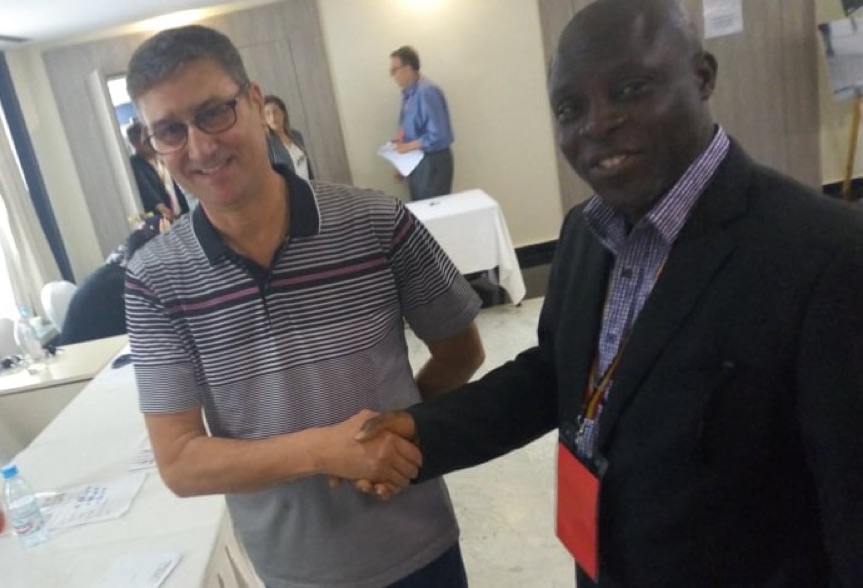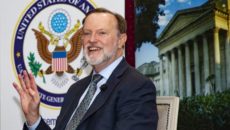TUNIS, Tunisia – The president of the Press Union of Liberia, Charles B. Coffey has addressed the ongoing 30th Congress of the International Federations of Journalists, with a focus on highlighting the progress and challenges faced by the Liberian media.
The conference is being attended by at least 300 trade union leaders from 187 media associations representing 140 countries around the world, with the aim of discussing the challenges faced by journalists across the world and the progress being made. This was the first time for the event to be held on the African continent.
The event began on Tuesday in Tunis and ends on Friday.
Coffey, who addressed the body on Wednesday on the current state of affairs of the Liberian media, said although there are challenges facing the Liberian media industry, the decriminalization of speech offenses is a significant progress in maintaining a more conducive operating environment of the media.
“We are happy to report that Liberia is now in compliance with the Declaration of Table Mountain, which requires that African governments abolish insult laws. As a manifestation of ensuring full compliance, the Liberian government has decriminalized speech offenses,†Coffey said.
The PUL president highlighted the difficult economic situation facing Liberian media outlets, in that many of them are financially unsustainable and face difficulties paying their journalists living wages. He drew attention to the need for a collective bargaining agreement for journalists to ensure that they could be better paid.
Coffey noted that the difficult economic situation facing media outlets means that the Press Union of Liberia itself could not raise enough funds to meet its IFJ member due to obligations.
“But our debt has been paid and cleared up to date, thus lifting the suspension on the PUL, which enabled me to speak and have voting right,†he added.
Coffey said the Press Union had taken steps to ensure that its member journalists adhere to international journalistic standards.
“The formation of the National Media Council of the union comprising nine members representing various sectors of the Liberian society is a clear manifestation of the Press Union of Liberia’s commitment to a high level of professionalism and ethical standards,†he said. “We also established an alert office to track attacks against journalists.â€
He said the Media Council has the responsibility to probe and resolve reports and complaints of ethical breaches.
The International Federation of Journalists’ first congress on the African continent also brought about the election of the first African president of the 90-year-old institution in Younes Mjahed of Morroco. Mjahed beat out his main challenger, Martin O. Hanlon, of Canada with 200 votes to 110.

The IFJ’s newly elected president, Younes Mjahed of Morroco, and PUL president Charles Coffey. Photo courtesy of Charles Coffey.
Mjahed vowed to champion the cause of African journalism unions along with the rest of the regions of the world at the IFJ. He promised to work with every country by identifying their issues and finding solutions in line with the IFJ working document and constitution.
Coffey said Mjahed’s victory was a result of leaders of African journalism unions’ attending the IFJ congress with a goal of presenting and supporting one candidate from Africa. He expressed optimism that the new IFJ president would include Liberia on the organization’s priority list.
Featured photo courtesy of Charles Coffey



